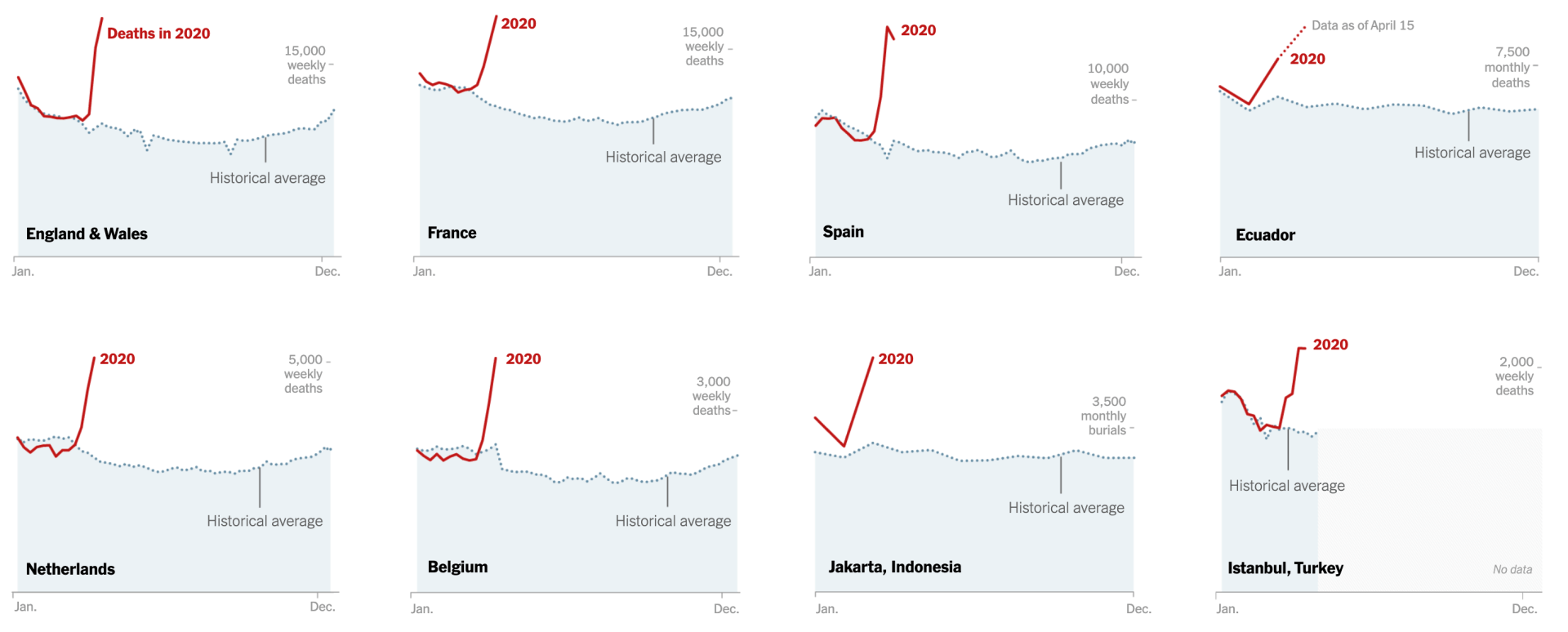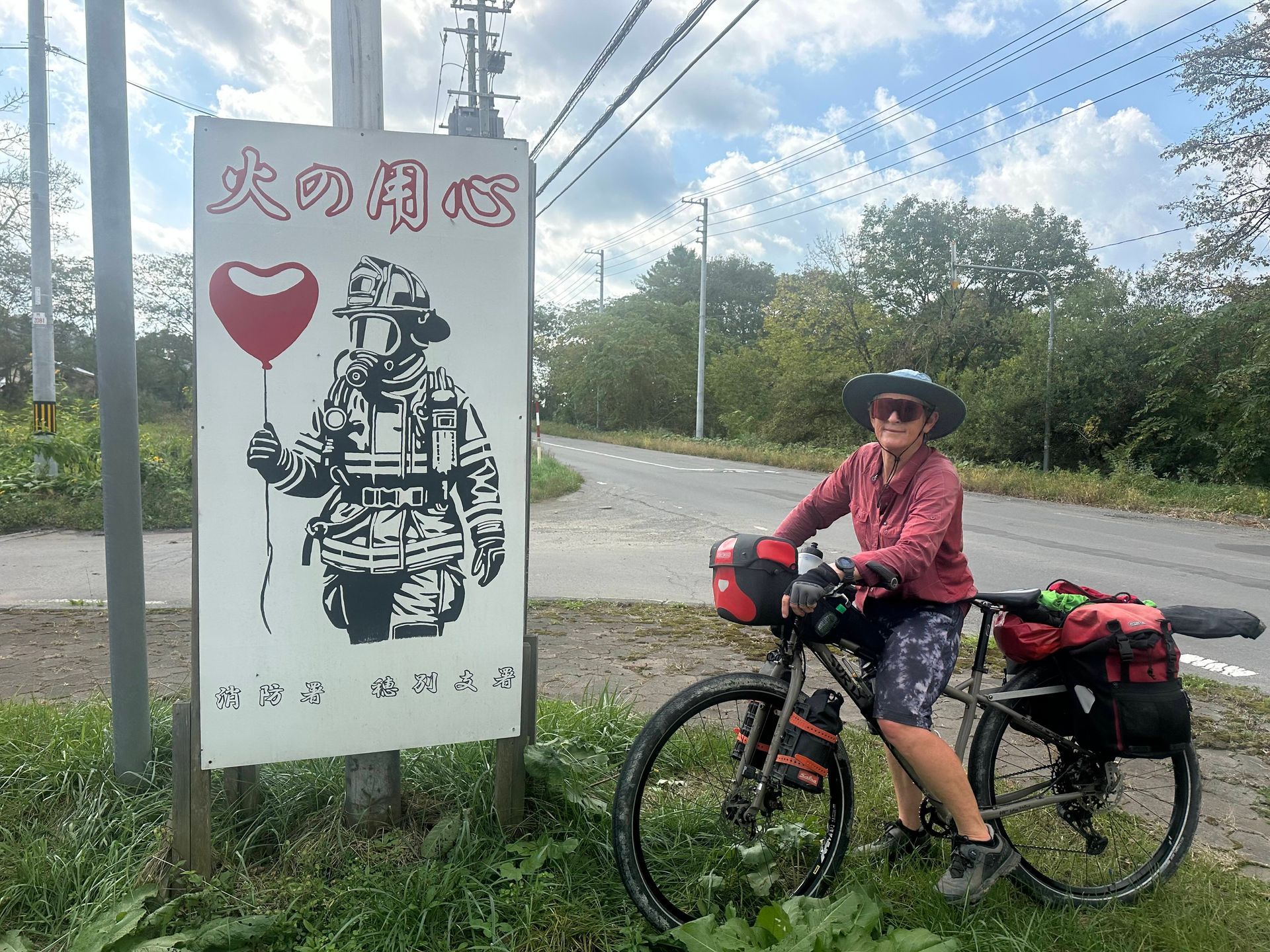Excess mortality

We learned early that living on a lifestyle block involved quite a bit of death and killing and that had to get used to it – growing your own food results in a resource war with other living organisms competing for the same resources. I still remember the day that I felt like the slugs were eating the vegetables, Porina moth (grass grub) beetles were eating the trees, hedgehogs were falling in the pond and floating around like surface-dwelling puffer fish, a rabbit had to be dispatched because it fell down the long drop and couldn’t climb out even with assistance, and I had a vendetta against ferrets because one had killed my 8 new chickens, less than 8 hours after I had brought them home.
On a rather more significant front, on the radio each day we hear voicing of sorrow for the people who die from COVID-19. An average of 800 people die each day in New Zealand; are we more sorry about those who die of COVID-19? It sounds to me like we are expressing particular sorrow that these deaths should not have happened. However, I may be reading too much into the words used; we just have no specific reason to mention the other 799 people who died each day in national broadcasts.
Related to COVID-19 are some interesting figures starting to appear that document ‘excess mortality’ around the world. Numbers of people who died in March and April, compared with average death rates – see below. This is something I had been wondering about – how many more people are dying, are they mostly those who would have died anyway? The documented reason for their death is not so important. Given that COVID-19 is the only major new factor in the equation, we can say with reasonable confidence that the number of excess deaths is a result of COVID-19 infections. The next question will be whether countries that have experienced a period of excess mortality then experience a period of particularly low mortality – this would occur if the people who died of COVID-19 might have died in the reasonably near future. Another possibility is that COVID-19 creates additional complications in some people who suffer it, so deaths could remain higher than normal. I hope that mortality data will continue to be made available so we can easily watch what happens next in the grand world experiment of COVID-19.

The Swedish experiment continues to be criticised, people are dying, particularly vulnerable people who are already ill or elderly. However, the Swedes are allowed to make their own choices about what they are prepared to give up for which lives – we all die at some point. That point is determined in part by the current state of medical care in the country in which we live, the ability of the state to provide such care, our own ability to pay for such care and our desire for the care.
The point at which one is allowed to die remains insufficiently discussed in society – it is something that I would like to see much more openly debated. Our euthanasia referendum is therefore welcome, as has been the prior debate around rights to euthanasia. Lucretia Seales would be happy to know that thoughts in New Zealand are gradually evolving, and that people are becoming clear about what they think, rather than putting consideration of death in a mental room that should not be entered.
Euthanasia for those close to death and with terminal medical conditions is at one pole of the continuum of situations in which people might die and there is a lot more room for discussion and consideration of where lines are drawn. A few years ago I read ‘ Being Mortal ‘ by Atul Gawande; he engages in really interesting debate around what makes life living and whether we exalt longevity over what makes life worthwhile. Gawande promotes that we become clear for ourselves about what makes life worth living, and incorporate this into our Advanced Care Plans , to help others make decisions for us according to our own wishes, when we are in a circumstance where we can no longer make decisions for ourselves. If we are old, do we want to be ‘rescued’ from pneumonia, whether COVID-19 or bacterially induced, or do we want that as a relatively quick exit strategy?
Another really pointy question is, if we have to apportion health care because we don’t have infinite budget and resources, who do we prioritise? Do we prioritise grommets so young children can hear and speak properly? Or do we prioritise intensive care of a 93 year old sick with viral pneumonia? In the end our resources are not infinite, so we do have to choose. I have seen interesting commentary on social media. There are people considering that all life is equally precious so all must be saved or treated. Which presumably means there are other activities they would prefer us to not undertake instead (though they don’t identify which ones). There are also people saying, if it is a choice between saving my 8 year old son and my grandmother dying, I pick my son, because she has had 93 years and I would like him to have some more years.
As in so many debates, there are no easy answers, but by asking the questions we further our own thoughts and by asking questions of others we gradually create informed, society-wide views on difficult matters. The following are some related questions that I continue to discuss both internally and externally:
- Is there a ‘Malthusian’ limit to human population ? Malthus erroneously assumed in the late 1700s that human populations grew exponentially and food production increased arithmetically, therefore people would run out of food. His thesis also included ‘positive checks’ – natural curbs on population such as disease, which would come into play. Malthus famously didn’t count on human ingenuity finding more efficient ways of producing food and treating disease. Modern proponents of Malthus argue that Earth’s resources are limited therefore, ultimately, human consumption of resources will at some point overrun what is available (and positive checks will also operate). Climate change could be seen as an ultimate exemplar of overrunning resources – overtaxing the capability of our atmosphere to maintain the temperatures we are accustomed to.
- Should every person be treated for every condition if medical technology exists that can treat them? If the answer is yes, what proportion of our national budget are we willing to spend on this? Are we happy for this to continue to increase ad infinitum as medical technology improves?
- Should we all be ‘owed’ a certain number of healthy life years by society and then have to fall on our own resources? Is it fair that those with lucky genetics get a greater proportion of society’s health efforts because they live longer and can therefore tax resources for longer?
- How do I create my own willingness to die – by being clear about what, for me, constitutes living? Will I be willing to hold to my concepts of ‘living’ from my current age when I am older? Or will I want to compromise?
Too many questions can, I admit, be somewhat overwhelming
.




